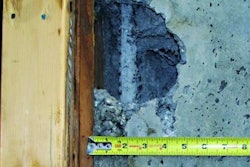CHICAGO - The flurry of recent tax legislation and the lingering effects of the economic downturn make this tax planning environment one of the most challenging in recent memory. Contractors need to do what they can to improve cash flow by effectively managing their tax burdens and leveraging any available new tax incentives. Tax planning over the next two years will require thoughtful and nimble analysis.
In order to help contractors with their planning, Grant Thornton LLP's Construction group has developed eight tax tips for contractors. Below is a sampling of some of the things construction contractors should keep in mind:
1. Double bonus depreciation - full expensing!
Lawmakers have extended and doubled bonus depreciation, allowing full expensing for many assets placed into service through 2011. Property qualifying for bonus depreciation that is placed in service after Sept. 8, 2010, and through the end of 2011 will be eligible for full 100% expensing.
2. Review deferred compensation plans.
Most contractors are struggling to remain profitable in this difficult environment. If your company cannot afford large bonuses to retain key employees, now is the time to revisit alternative compensation arrangements.
3. Certain S corporations should consider taking gains in 2011.
If you converted to S corporation status in 2004 or 2005, consider sales of "gain" property in 2011. Special provisions enacted over the last two years provide a reduced seven-year period for sales that take place in 2009 or 2010 and a five-year period for sales of property during 2011.
4. Take full advantage of capital asset expensing deductions.
Rules originally intended for small businesses were significantly expanded to allow contractors to expense up to $500,000 of 2010 fixed asset costs, provided less than $2 million of assets were placed in service throughout the year. Unlike bonus depreciation, this applies to new or used assets.
5. Maximize Section 199 deductions.
The Section 199 domestic production activities deduction is a unique tax incentive available to most contractors. This incentive allows taxpayers to deduct 9% of qualifying production activities, which includes the construction or substantial renovation of domestic real property.
"To learn how these tax tips may apply to your contracting business, please contact your tax adviser," said Todd Taggart, Tax partner and practice leader of Grant Thornton LLP's Construction practice.
Grant Thornton LLP's Construction, Real Estate and Hospitality group has developed eight tax tips for contractors. To read all of the tax tips in their entirety, go to www.GrantThornton.com/CRHtaxtips or email [email protected].


















